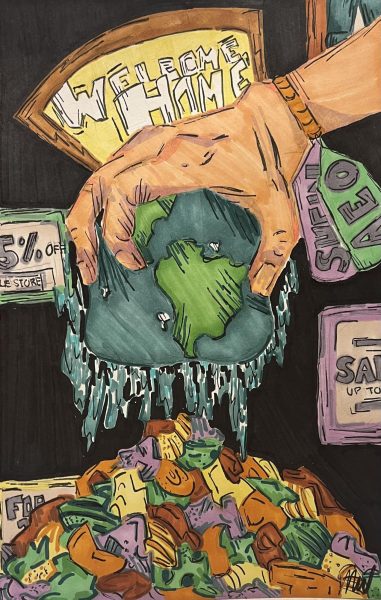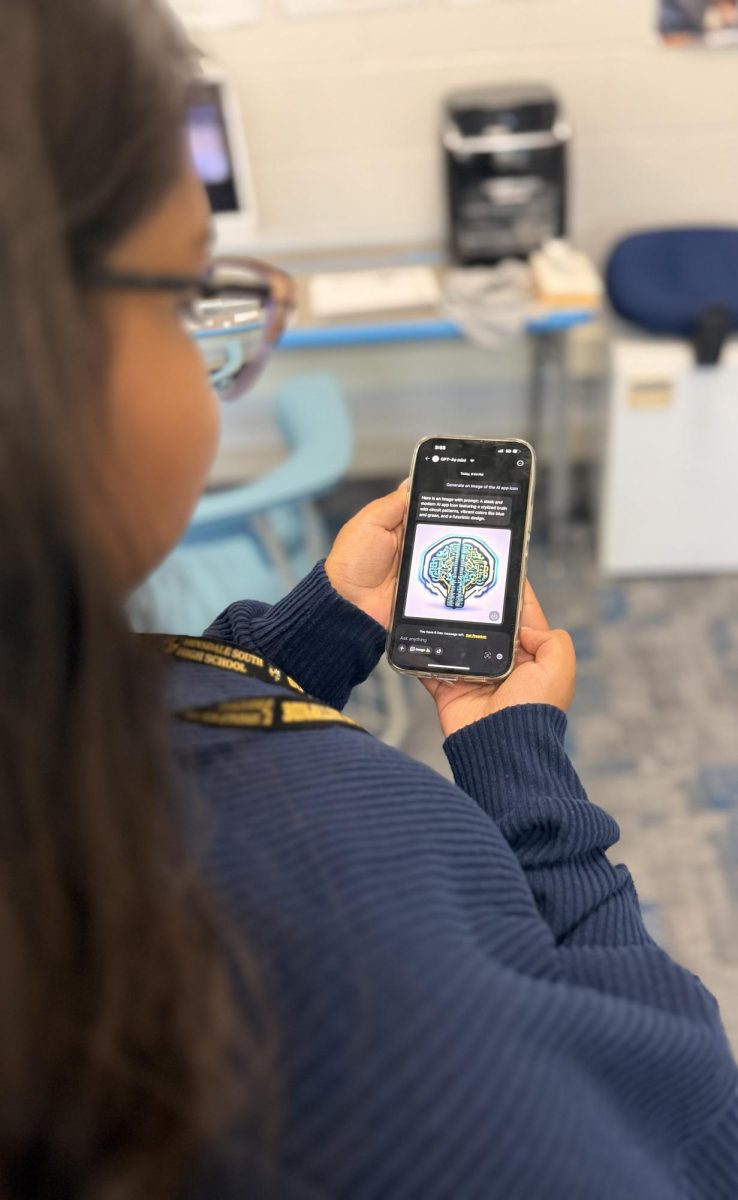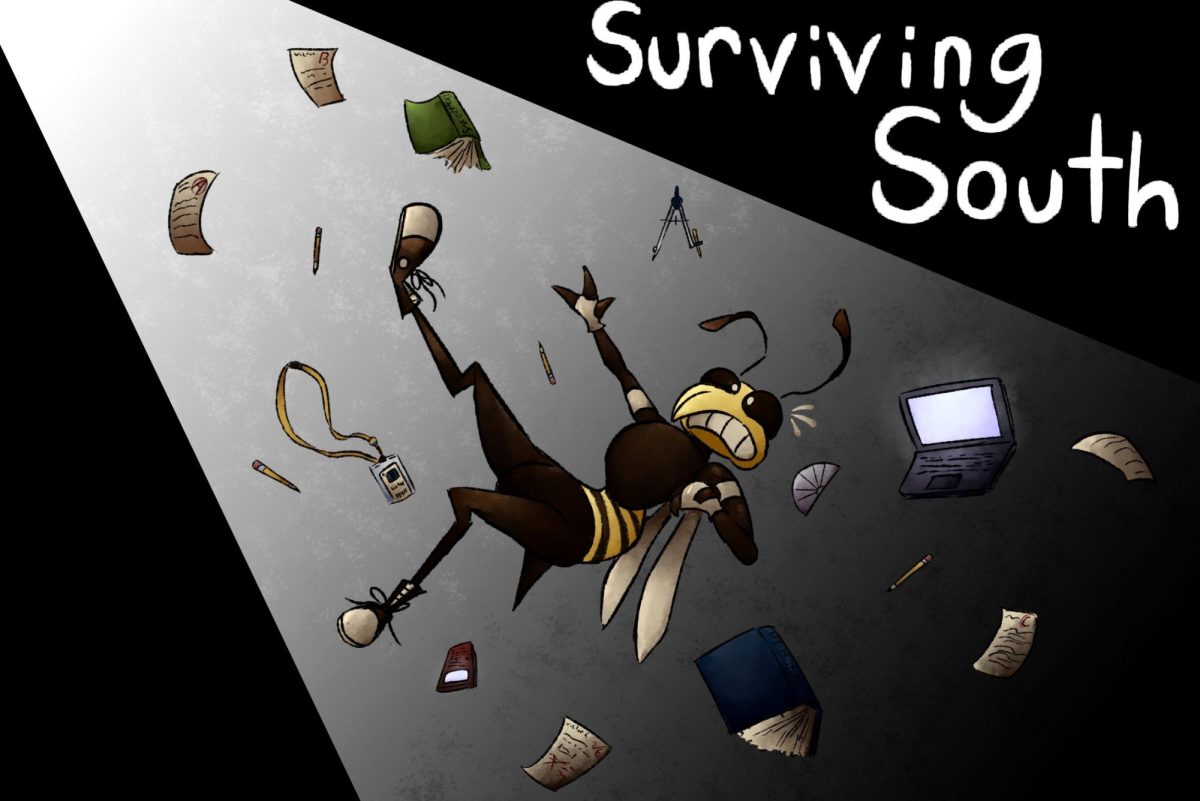While pioneering fashion businesses are turning towards greener and more sustainable methods of production, it appears that some are preoccupied with reaping a different type of green outcome, crisp stacks of Franklins bursting from their pockets.
From lines winding around store entrances on Black Friday to advertisements flashing sporadically across Times Square, consumerism is ingrained in our society. It’s evolved to be part of our culture, but when $5 tops and $10 bottoms flood the racks, it begs the question of ethics and quality in general. Dominating companies like Forever 21 and Shein-who just recently joined force-employ these fast-fashion business models for the sake of profit.
The 2 lb shirt tossed across your hamper, in reality, is a product of about 5800 lbs of resources. For every cotton shirt produced, nearly 700 gallons of water are used, exacerbating the depletion of one of Earth’s limited natural resources. And when most fast fashion products have life spans of up to 10 wears and are based on fleeting trends, it’s unsettling to imagine how quickly they’re discarded into landfills. In fact, one garbage truck filled with clothes is dumped every second with the majority being non-biodegradable.

This past summer, American Eagle teamed up with Prime Video’s television series The Summer I Turned Pretty to release a collection. The line features shirts with the phrases “Team Belly”, “Team Conrad”, and “Team Jeremiah”. Though the show may have immense popularity in the U.S. currently, who’s to say it will carry this status in upcoming years? And with the fading of the show, the garments will be cast aside.
The low price of products may seem too good to be true, and that’s because it is. There is a darker side to the business behind the pastel prints and flashy designs. More often than not, low prices are an indicator of forced labor despite its illegality across the world. Both Temu and Shein are under investigation for using materials and products from Xinjiang, a region notorious for using forced labor. Though Shein continues to deny allegations, laboratory tests have confirmed Xinjiang cotton in some products.
Temu, however, brought up a debatable point in their defense. Because of direct shipping, the company argued that the U.S. consumer should take responsibility for the importation of restricted goods. So, are teenagers to blame for fast fashion’s consequences or are we simply a pawn in the game?
At the ripe ages of 12 to 17, we are undergoing one of the most formative periods in a human’s life. We are forming stronger synapses in our brains that strengthen as they are more frequently used, a concept defined as “synaptic plasticity”. However, it’s important to remember that the prefrontal cortex, the hub for decision-making, is not fully myelinated meaning we experience slow signaling in this area. Thus, we’re more vulnerable to addiction and compulsive activity. Though addiction is most commonly associated with drugs and alcohol, shopping and social media can also be classified as such.
The heart of social media is geared by algorithms that tailor advertisements to personal preferences. When scrolling mindlessly through our feeds, we are swamped unexpectedly with a surplus of ads, ranging from 4,000 up to 10,000 in a single day. The vast majority will be mentally blocked out, but it’s inevitable that our brains will latch onto a few, causing impulsive purchases to soar.
Stimulating this urge, nearly 1/3 of teenagers are bestowed with the key to overconsumption, a credit card. The benefits of the paper money our grandparents stash away in books and beneath floorboards are often discredited. By physically giving away something, consumers experience a phenomenon known as “shopper’s guilt”; it’s a tangible trade. However, with a credit card, consumers are able to mindlessly complete a transaction with just a swipe.
As we see, companies are actively taking advantage of the resources we have at hand by way of carefully devised psychological means. It sounds a bit like mind manipulation, doesn’t it? Though it may seem like it, we’re not chained to fast fashion. Ultimately, we are in a codependent relationship with businesses and we have the executive decision of who to support. The clownfish can’t live without the anemone and the anemone can’t live without the clownfish.
We can make a change by investing in long-lasting, high-quality clothing, wearing second-hand pieces, purchasing from small businesses, and educating ourselves on brands and the consequences of our purchases.







